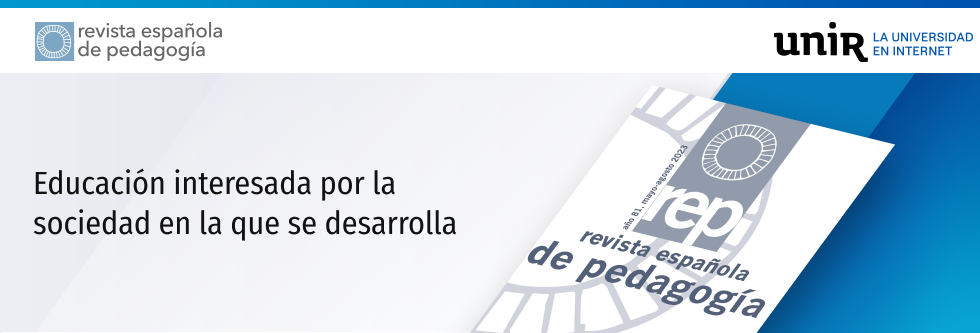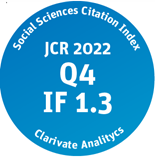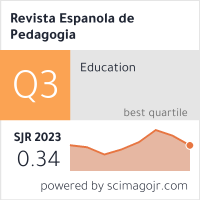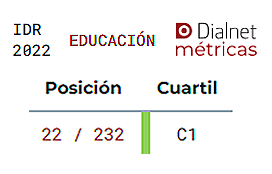Garrido Gallardo, M. A. (Ed.) (2021). Una hoja de ruta. La pretensión cristiana en la época posmoderna [A Road Map. The Christian aspiration in the postmodern era] (Luis Alburquerque).
Resumen
Volume comprising eight collaborations published in different editions of Nueva Revista de Política, Arte y Cultura brought together here by the editor of the journal and of this publication to form an essay on the question of how in Europe (and outside of Europe) we have gone from the Christian and Western civilisation to a postmodern culture, and how the traditional culture revindicates its grounds for being the dictatorship of relativism in the new context. ,
The editor, Miguel Ángel Garrido Gallardo, professor of research in the Discourse Analysis Group of the Span-ish National Research Council (CSIC), starts the book with a chapter called What is happening? (pp. 13-26), in which he analyses the occurrence of three successive dominant accounts in Western culture over the last century: the Christian account, the Marxist account and the postmodern account. ,
He suggests that we have fallen into absolute relativism: “we live in a fair ground, in a bumper-car enclosure where everyone can drive as they wish, provided they don’t hit the person next to them”. He also, however, establishes a paradox: ,
in a society of absolute relativism, there should be a place for those who accept that truth exists, those who search for the truth (another fixation); however, in the postmodern society, the account with foundations is the only one that is not accepted and that is due to the thought that such persons who believe in the truth are potentially violent, given that those who are convinced of the truth would tend to impose it, even by force (…). A degree of ancient inquisition arises. In ancient times, daring to utter discrepancies with the law of God, saw one burned at the stake. Nowadays, daring to show conformity, leads, at least, to civil death. (p. 23) ,
And therein lies the difficulty. ,
Rob Riemen, the Dutch thinker and founder of the Nexus Institute, refers in his contribution (pp. 27-38) to a discussion on the limits of science that he observed at a symposium held in Hannover. In a literary and very intriguing style, he sides with one of the participants in the perception that Wittgenstein, who was a philosopher, engineer and architect, provides at the end of his Tractatus Logico-Philosophicus: “We feel that even if all possible scientific questions be an-swered,the problems of life have still not been touched at all. Please, think a little about what Wittgenstein wants us to understand” (p. 32). ,
With the title, Truth, Beauty and Good in Roger Scruton (pp. 39-54), the author, Enrique García Máiquez, offers a vigorous biographical sketch of the great conqueror of postmodern culture, of today’s political correctness. In García Máiquez’s words: ,
This recap is a poem of epic tones that reminds us that we cannot conclude the biographical sketch of Roger Scruton with-out mentioning that his figure has taken on quixotic dimensions. He placed wind turbines in the scope of nihilism and has demonstrated that they were not phantasmagorias, but rather powerful systems of thought, with collusion in subjective commodities and shared laziness, that could casually grind down the Western values. Scruton has refused nihilism and rebelled against reductionism, turning the postu-lates of postmodernism upside down. ,
The chapter brings together the synthesis of Scruton’s thinking, a complete amendment, from a metaphysical perspective, that will attract everyone’s interest. ,
The next chapter (pp. 55-66) has the ironic title, The monkey descends from man, and it is a review by Garrido Gallardo of Tom Wolfe’s posthumous book, The Kingdom of Speech (2016). Speech is where the boundary lies between human beings and animals. While the ideol-ogy of Darwin’s Origin of the Species is well known, Tom Wolfe harshly criticises Chomsky for surrendering to the political correctness that allows for such ideological understanding. There’s no doubt that Noam Chomsky is the linguist par excellence of the second half of the twentieth century, discoverer of an approach that has invigorated —one step further— the linguistic research of the last seventy years. But, what of language itself? In the opinion of the author of the article, the documented diatribe of Wolfe against scientism entails a clear lesson: after so much bickering about whether man de-scended from the monkey, is it going to turn out that the monkey descends from man and has to develop abilities that man, due to his intelligence, didn’t have the need for? ,
The piece by the philosopher Juan Arana, Posthumanism and transhuman-ism (pp. 66-94) examines the transformations of the classical metaphysical questions of human beings (where am I from?, where am I going?, who am I?) that have arisen on the back of the relativistic embrace of new technologies: transhumanism (where are we going?) and posthumanism (what will we be?). Rad-ical transhumanism affirms that there are no transformation limits other than those imposed by technoscience, while posthumanism envisages, consequently, as an end, a category of beings that are no longer human, but rather their legitimate heirs. Transhumanism and posthumanism entail attempts to reduce the metaphysical to physical, and annul the work of philosophy and religion. ,
With good reason, recalls Arana, Roger Penrose has thwarted, among many others cited, the claims of all non-biologistic humanisms. These need, as a first step, to reduce the human mind to a logical complex algorithm. The human mind simply doesn’t work like that. It is not an IT program that can be activated in the most wide-ranging of formats. The union between the body and soul is much more intimate than what Plato, Descartes and cyber-transhumanists claim. As such, it regards the psychological pole of man, and does not boil down to a mere physiological or biochemical functionality. ,
The fantasy, says Arana, is gradually turning into a nightmare, “the promised paradise takes on a hellish appearance and, finally, we can only take comfort in that, like a bad dream, it will at some point pop like a soap bubble” (p. 93). ,
The chapter signed by the Professor of Philosophy of Law, Andrés Ollero, Faith and reason (pp. 95-104), extensively reflects the thinking of Joseph Ratzinger (Pope Benedict XVI). In accordance with the academic structure of this text, perhaps the most effective method, for the purpose of this review, is to encourage you to read it carefully and to offer a snippet of the final page: ,
[Pope Benedict XVI evoked in Regensburg that] “the absence in the acceptance of a natural law, rationally accessible, would inevitably delay the possibility of dialogue with modernity. Only that rationally shared natural law would be able to open the way for ‘dialogue of cultures’, inviting pos sible partners to access ‘this great logos, to this breadth of reason”. Not far from this capacity of dialogue are, in the opinion of Habermas, the secularists who forget that the liberal State: “cannot discourage believers and religious communities so that they abstain from expressing themselves as such and in a political manner, as it cannot be known, conversely, whether or not the secular society is disconnecting and taking away important reserves for the creation of sense.” Indeed, it was suggest-ed, in parallel, that: “the deeply religious cultures of the world believe that that very exclusion of the divine from the universality of reason is an attack on their most profound convictions; a reasoning that is deaf to the divine, and that relegates religion to the category of subcultures is uncapable of entering into the dialogue of cultures”. Just as grave as the lack of faith of those who seek to monopolise reasoning, it may result in a shortness of fondness for reflection and rational discussion of many believ-ers. Therefore, having the guidance of a pope who acted as Defender of rationis, is a true gift. (p. 104) ,
Today’s woman (pp. 105-117) by the lecturer at Universidad Carlos III María Calvo Charro addresses the issue of feminism. Let’s remember that feminism has diverse meanings: (1) universal feminism that defends the essential equality of people and fights against the historic con-straints that discriminate against women; (2) feminism that proclaims the identity of both sexes, beyond the consideration of data that are accepted on the exis-tence of an innate sexual dysmorphism; (3), among others, feminism embedded in gender ideology (not explicitly covered in this book) which considers gender as a condition or an option and inevitably clashes with those who postulate the previous meaning. ,
Here, the author defends the stance that many women want to be themselves, contributing their values and qualities, and that they are willing to fight against social roles that impose upon them jobs according to masculine standards that entail renouncing maternity and disconnecting from family. It is a position that conflicts not only with the third, but also the second meaning provided. In other words, more politically incorrect, impossible. ,
The excellent analysis of the postmod-ern discourse the book provides us with is completed by the text called It’s worth living (pp. 117-160), which contains an extensive interview with the recently deceased Cervantes award-winner, José Jiménez Lozano (1930-2020), carried out by Guadalupe Arbona Abascal and Juan José Gómez Cadenas, and a short story by the author, also published in Nueva Revista. In a wonderful conversational tone, he concludes through a key testimonial, beyond any explicitly intentionality, the big question that the volume addresses on political correctness and postmodern culture in general. ,
After its reading, we remember that the editor suggests at the beginning of the book that it infers a dual outcome: the value of affability and the primacy of the testimony at the service of the humanist tradition. As with the existence of the prejudice that those who believe truth will be imposed (if possible) by force are violent people, giving an opportunity (or even pretext) to think that that is the case must be avoided. As every model is coherent, attempts to understand them must not focus on the weakness of this or other details of one model or another, but rather the message sought to be conveyed. In short, affability, the lesser result of goodwill (unconditional love), acquires rare importance, and the primacy of praxis (“actions speak louder than words”) is the apologetic argument par excellence, and nothing comes close to it. ,
In the context of the educational journal in which these works are published, A Road Map teaches us, in conclusion, that educating values requires, today more than ever, special focus on affability and coherence. ,
Luis Alburquerque ■
Citación recomendada | Recommended citation
Alburquerque, L. (2023) . Garrido Gallardo, M. A. (Ed.) (2021). Una hoja de ruta. La pretensión cristiana en la época posmoderna [A Road Map. The Christian aspiration in the postmodern era] (Luis Alburquerque).. Revista Española de Pedagogía(1). https://www.revistadepedagogia.org/rep/vol0/iss1/30
Licencia Creative Commons | Creative Commons License
Esta obra está bajo una licencia internacional Creative Commons Atribución-NoComercial 4.0.
This work is licensed under a Creative Commons Attribution-NonCommercial 4.0 International License







Commentarios | Comments
Garrido Gallardo, M. A. (Ed.) (2021).